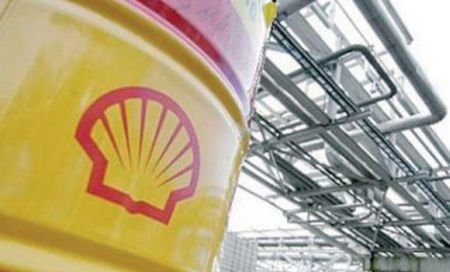
Royal Dutch Shell has quit Saudi Arabia’s Kidan sour gas project just ahead of the previously expected launch of front-engineering and design tenders for the long-awaited development, the company said Tuesday.
“Shell has decided to end further investment in the Kidan development,” a company spokesman said in an e-mailed response to questions.
Industry sources familiar with the project had previously predicted Shell would issue FEED tenders for Kidan in mid-2014, preparing the ground for the $4 billion first phase of the field’s development.
Shell said Tuesday it had been in “regular dialogue” over the project with officials at the Ministry of Petroleum Mineral Resources and national oil company Saudi Aramco, its partner in the South Rub al-Khali, or SRAK, field development joint venture formed more than 10 years ago.
“This was a difficult decision but Shell remains committed to the Kingdom and we are keen to grow our investments, both in upstream and downstream,” the company added.
Kidan is in the heart of the harsh Rub a-Khali (Forbidden Quarter) desert, which covers a large swath of territory in the south of the Arabian Peninsula, and its proposed development posed severe technical, logistic and economic challenges for SRAK.
Large amounts of hydrogen sulfide, which is highly toxic and corrosive, would need to be removed from the raw gas and associated liquids to make them usable, generating elemental sulfur as a major byproduct in the process that Shell has previously used at large sour gas projects in Canada, the Caspian region and elsewhere. There is an international market for sulfur, which is used mainly to make fertilizers, sulfuric acid and sulfurized rubber, but to get the commodity to tidewater from such a remote Saudi location would entail building a long-distance rail link or heated pipeline to the Saudi east coast. The cost of the former could be prohibitive, while the latter would present an extreme technical challenge.
Moreover, with Saudi domestic gas prices held artificially low by entrenched government subsidies, the economic feasibility of developing Kidan would hinge on the outlook for sales of byproducts including sulfur.
Analysts doubt that Saudi Arabia and the neighboring UAE emirate of Abu Dhabi, which is pressing ahead with its own $10 billion Shah gas development in the UAE sector of the Rub al-Khali desert, would cooperate on sulfur transportation by rail to Persian Gulf coast. A UAE spur from Shah to the Gulf Coast is planned as the first link in a UAE national railway system, and it could theoretically be extended across the Saudi border to Kidan, but adding to the already ample sulfur supply that Shah is expected to generate would put downward pressure on prices, to the detriment of Shah’s project economics.
Saudi Arabia and the UAE are desperate to step up production of non-associated gas to satisfy fast growing domestic demand for gas to fuel power generation and industry, and for re-injection into mature oil fields to improve crude recovery. The two OPEC members both have substantial additional reserves of gas associated with oil fields, but associated gas output can only be ramped up in conjunction with higher crude production, which in turn is subject to OPEC ministerial agreements.
International oil companies were for the first time in decades invited to participate in Saudi domestic upstream oil and gas projects when the petroleum ministry decided, shortly after the turn of the millennium, to seek technologically competent partners for Rub al-Khali gas exploration ventures. Subsequently, Aramco launched a deepwater gas exploration program off the Saudi Red Sea coast from which this international participation was excluded. In recent years, the national oil company has also been assessing the potential for shale gas development in the north of the kingdom.
Shell’s pull-out from Kidan follows a number of previous disappointments in the Rub al-Khali in which international joint ventures either failed to find gas or discovered deposits that were deemed uneconomic to exploit.
Aramco officials were unavailable Tuesday to comment on whether the Saudi national oil company would consider solo development of Kidan while simultaneously spending heavily on Red Sea and shale gas initiatives.
Also unknown is whether Riyadh might now be prepared to sanction foreign participation in other types of non-conventional gas development. Shell’s comments Tuesday suggest this may not be entirely out of the question.
We use cookies to improve your experience. By continuing to use our site, you accept our Cookies, Privacy Policy,Terms and Conditions. Close X